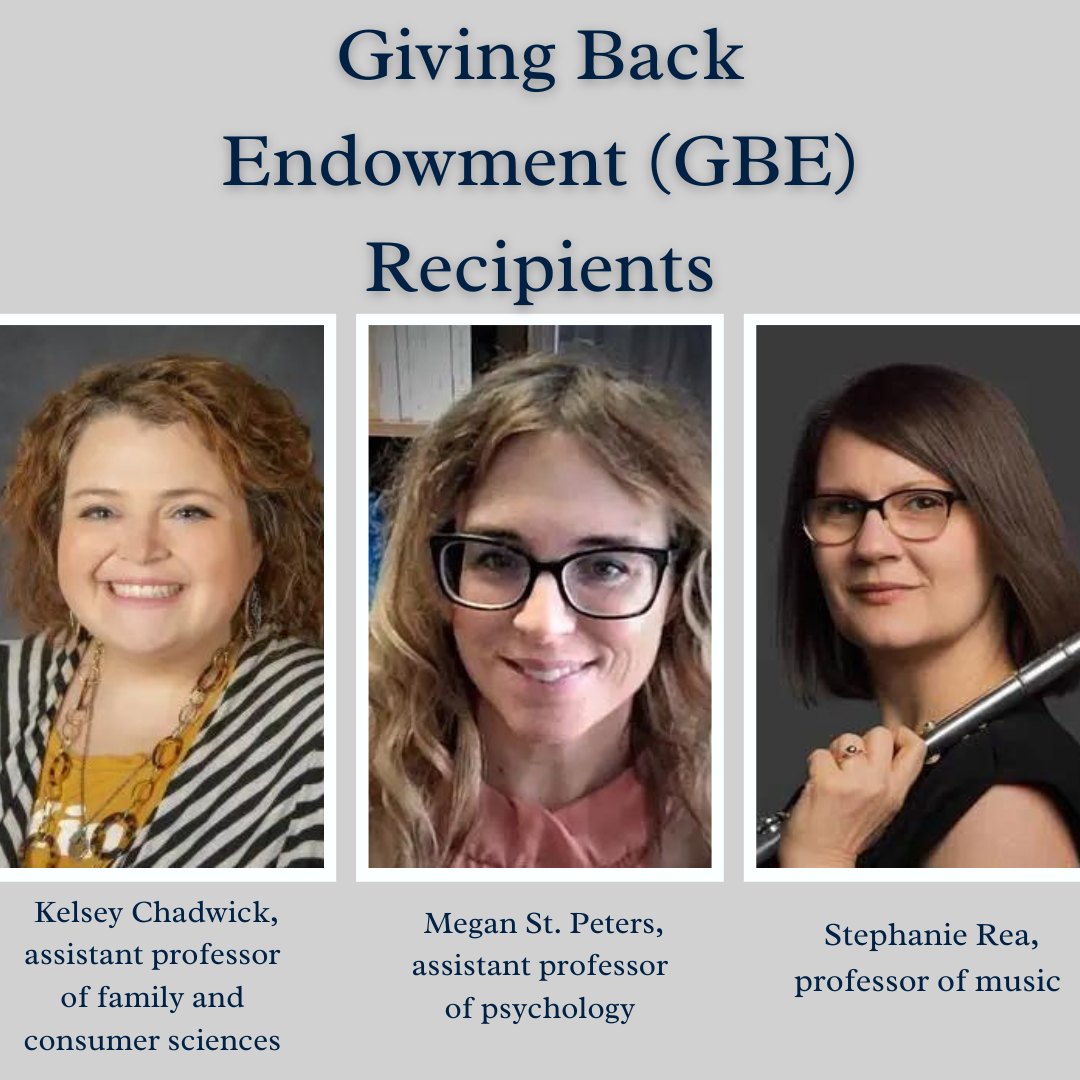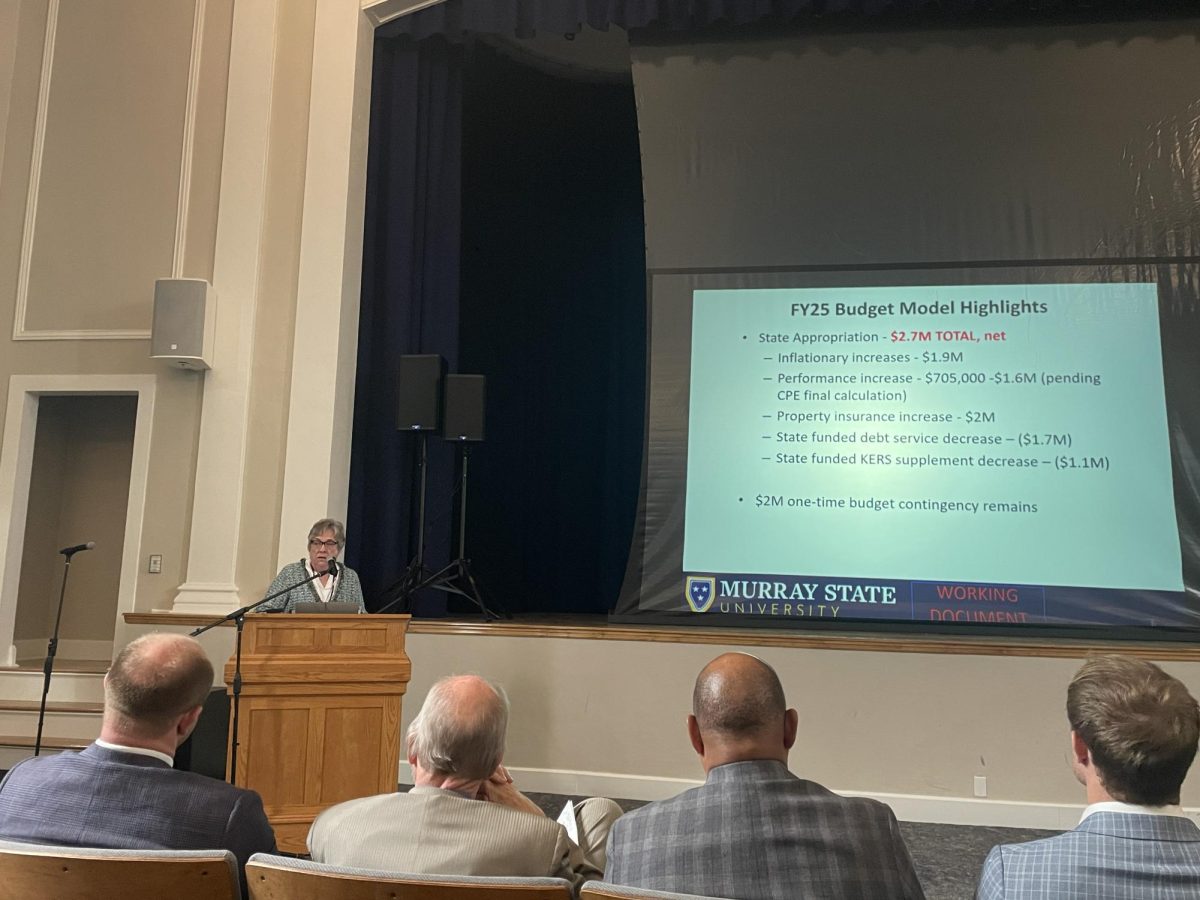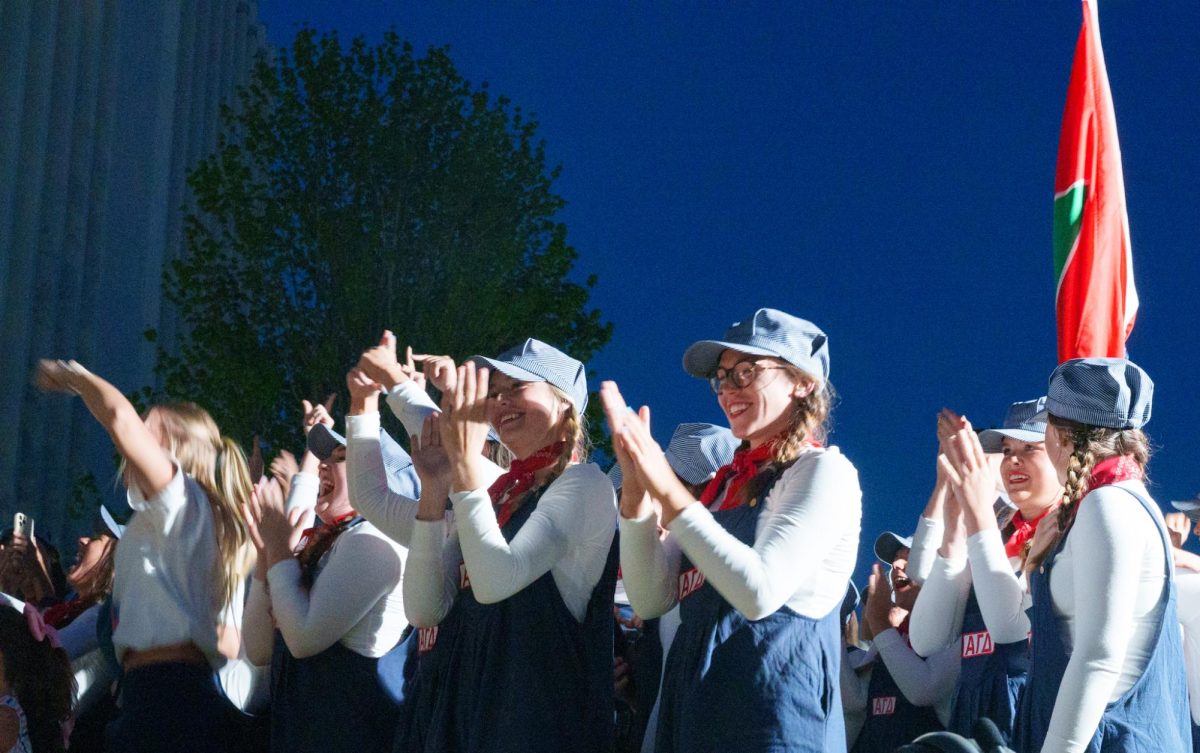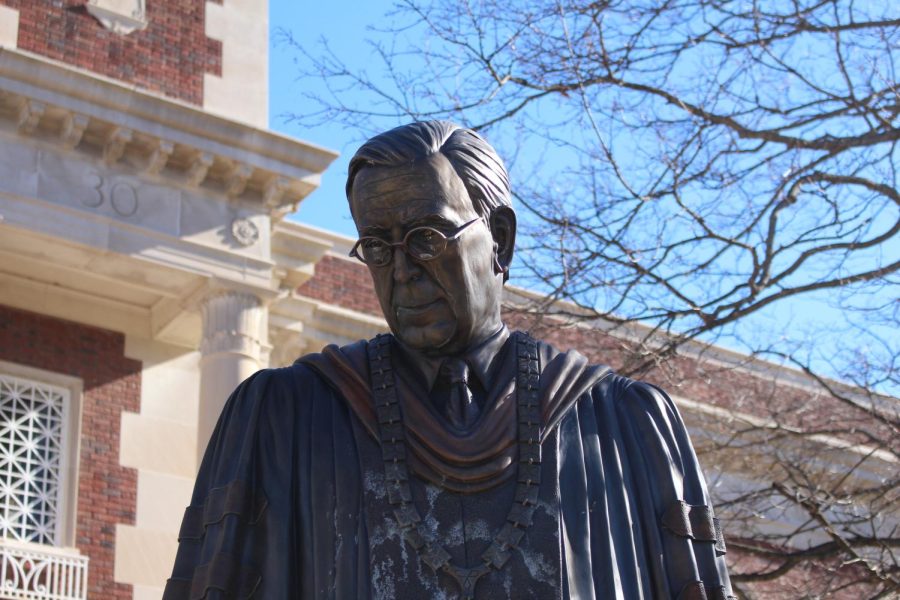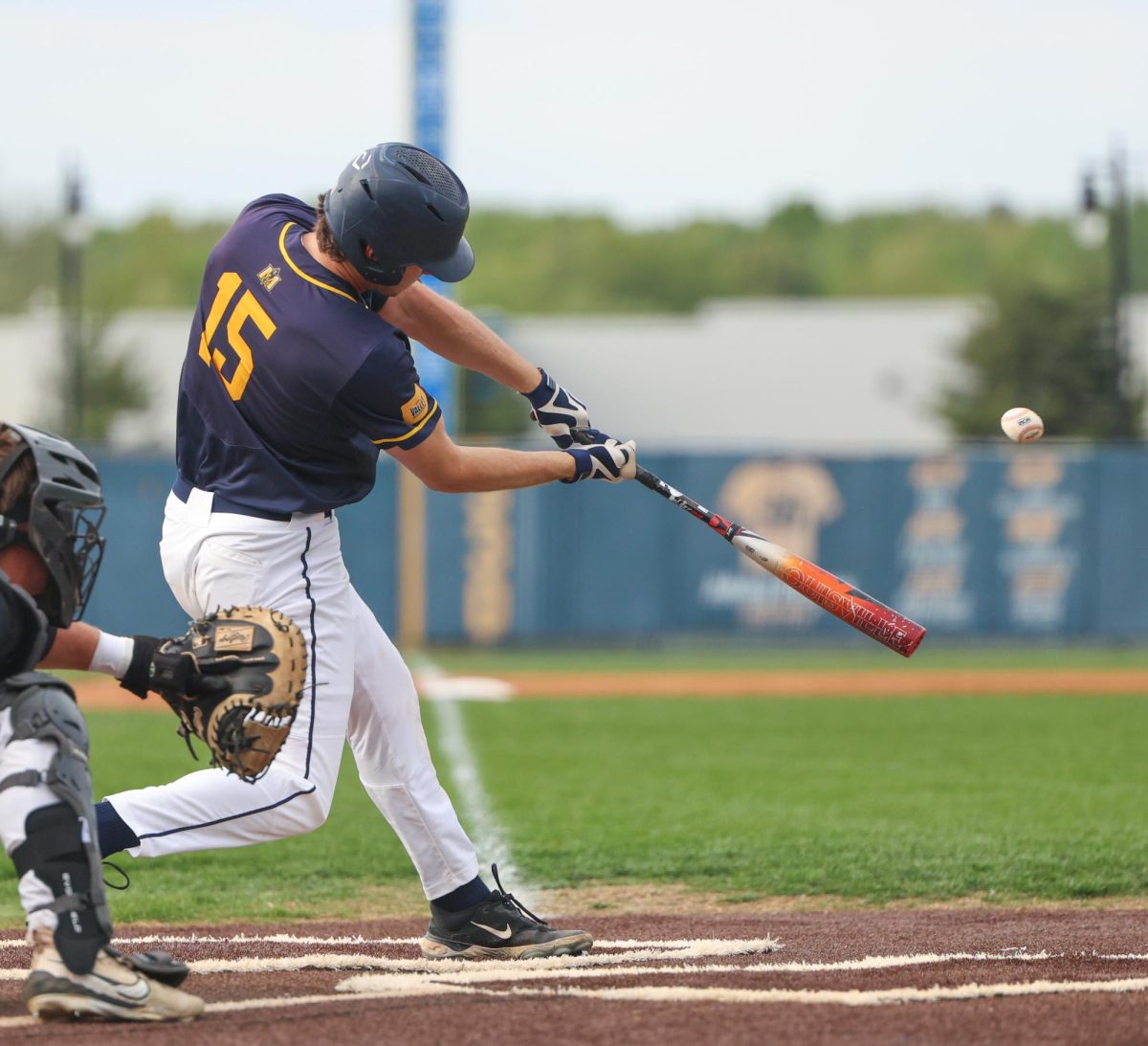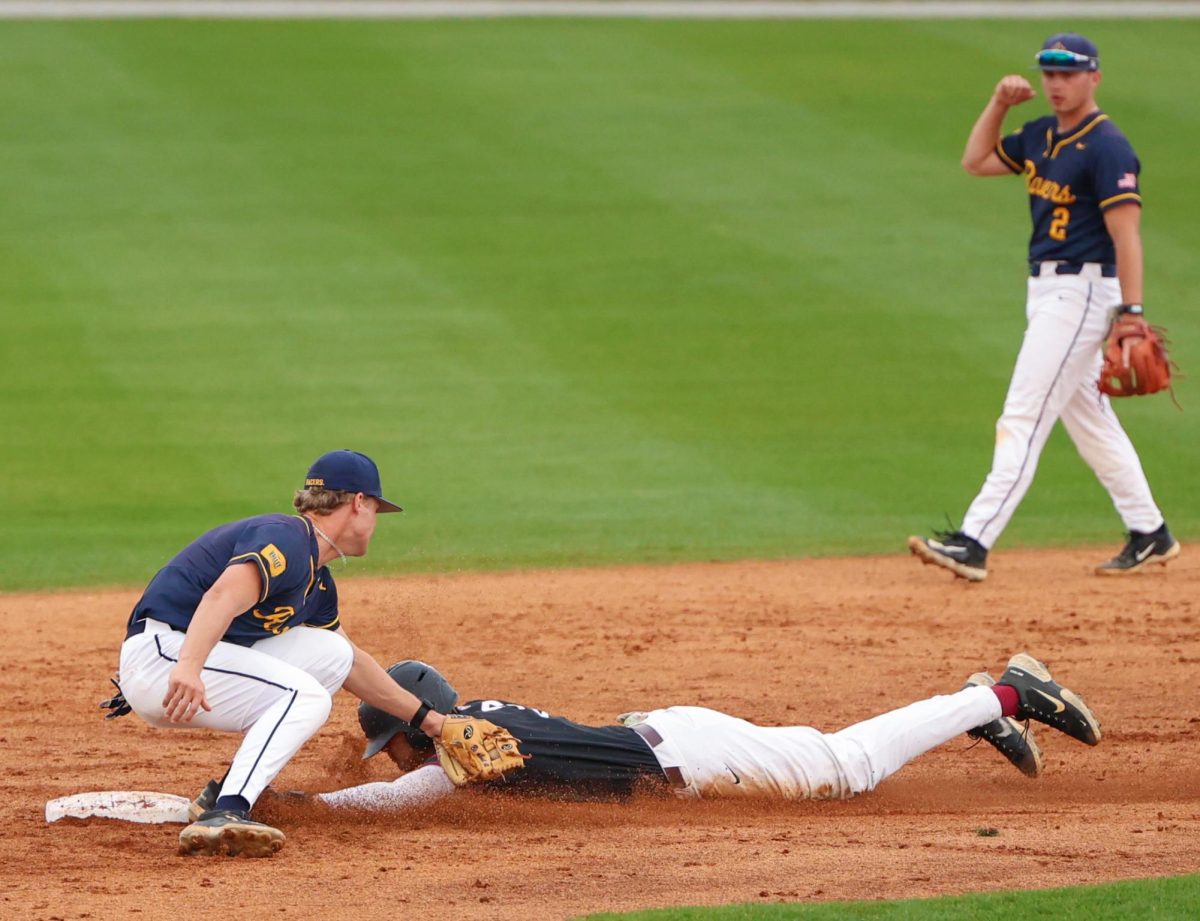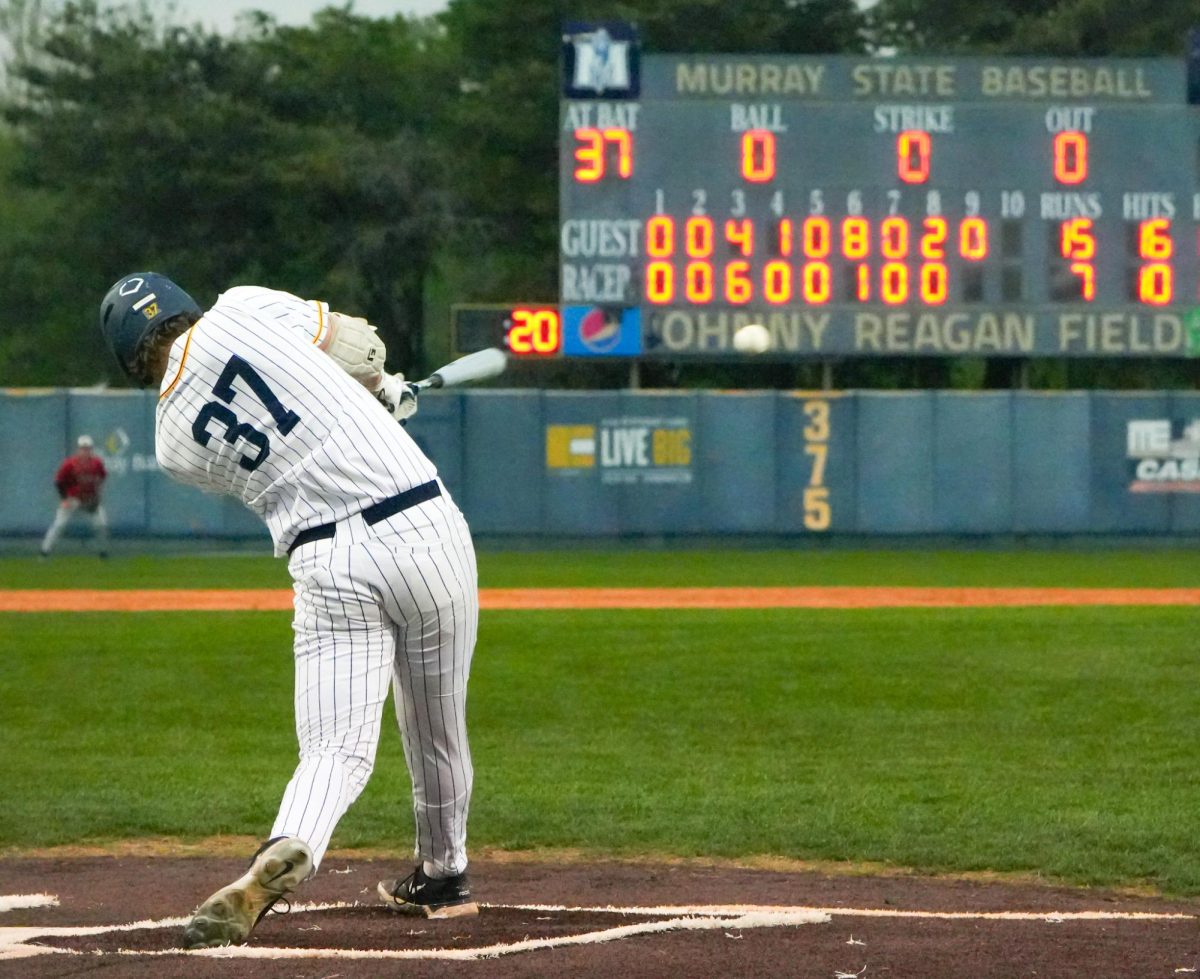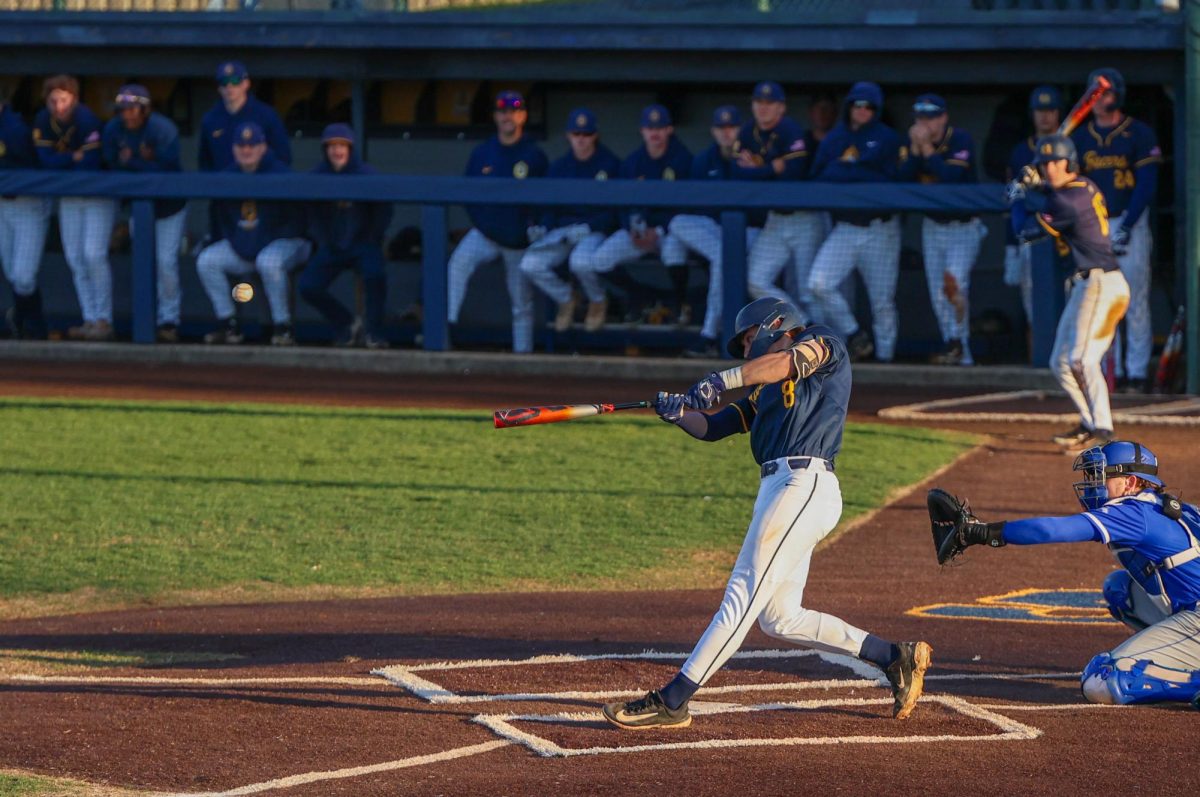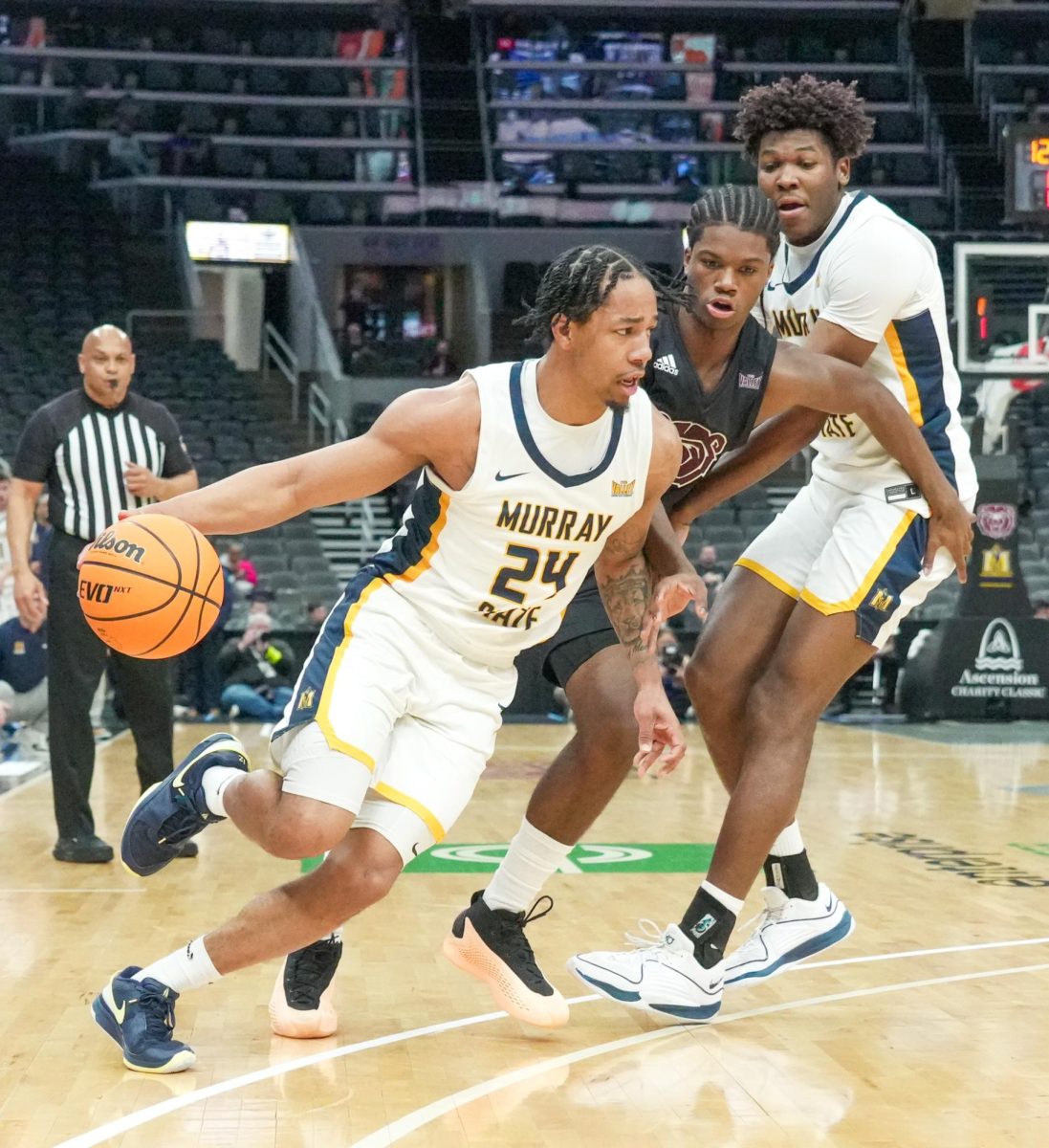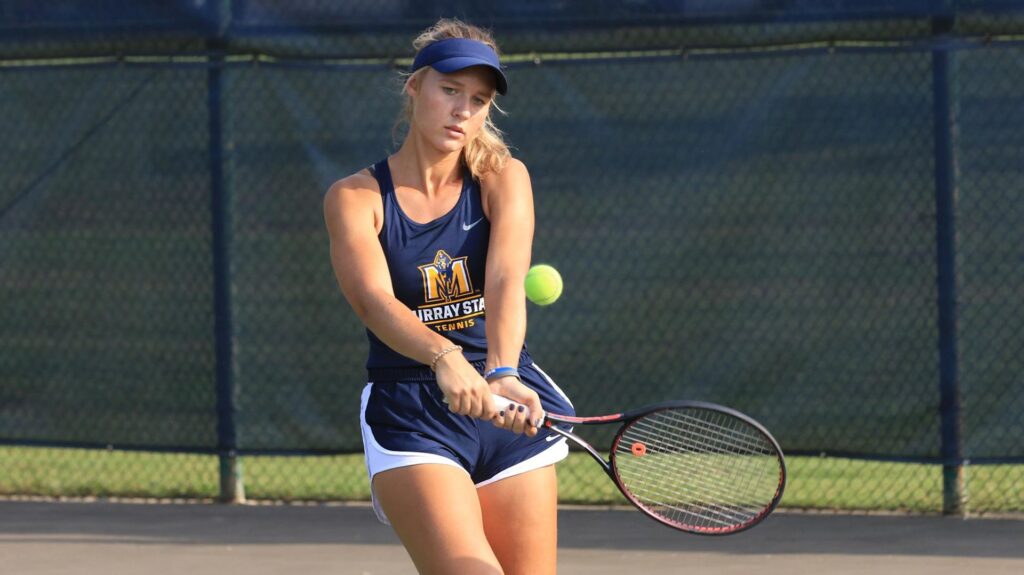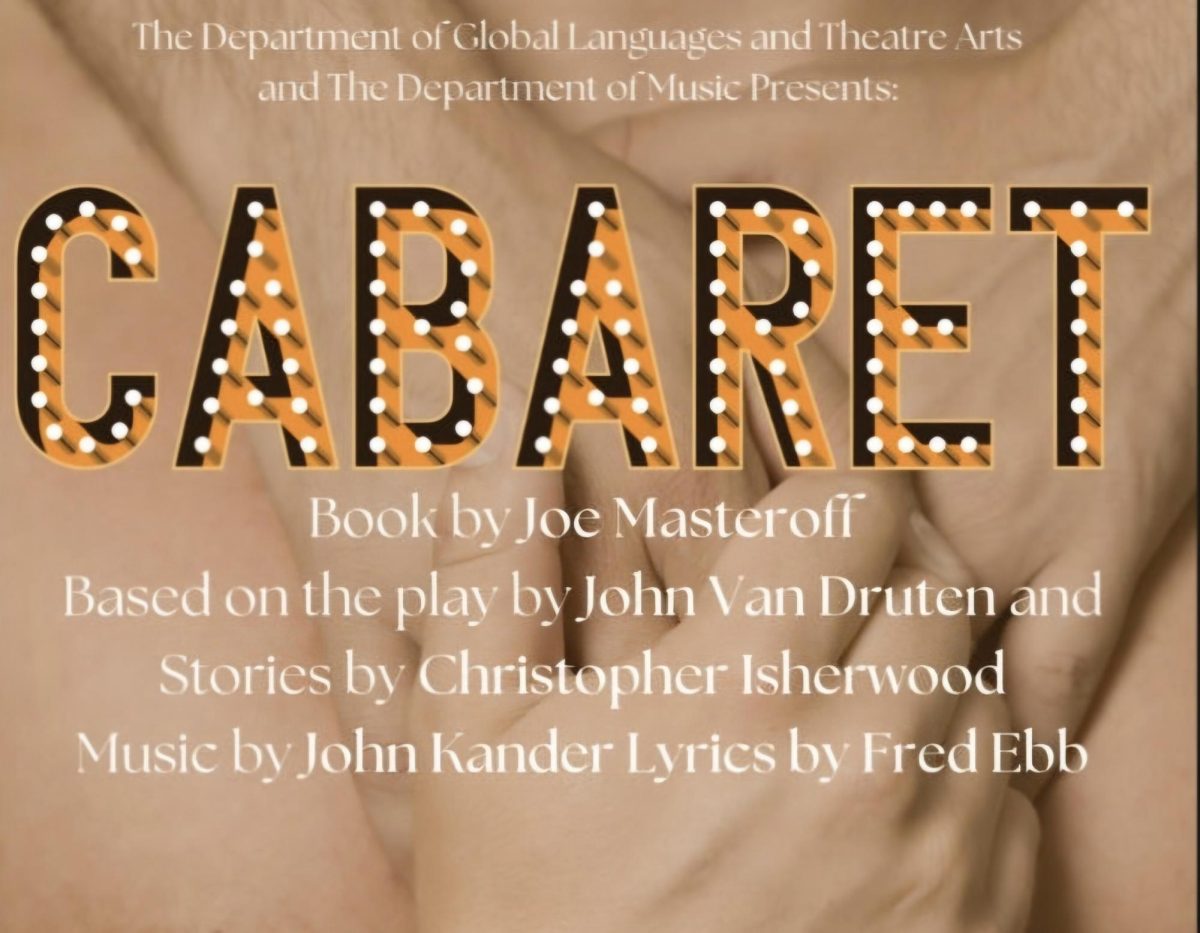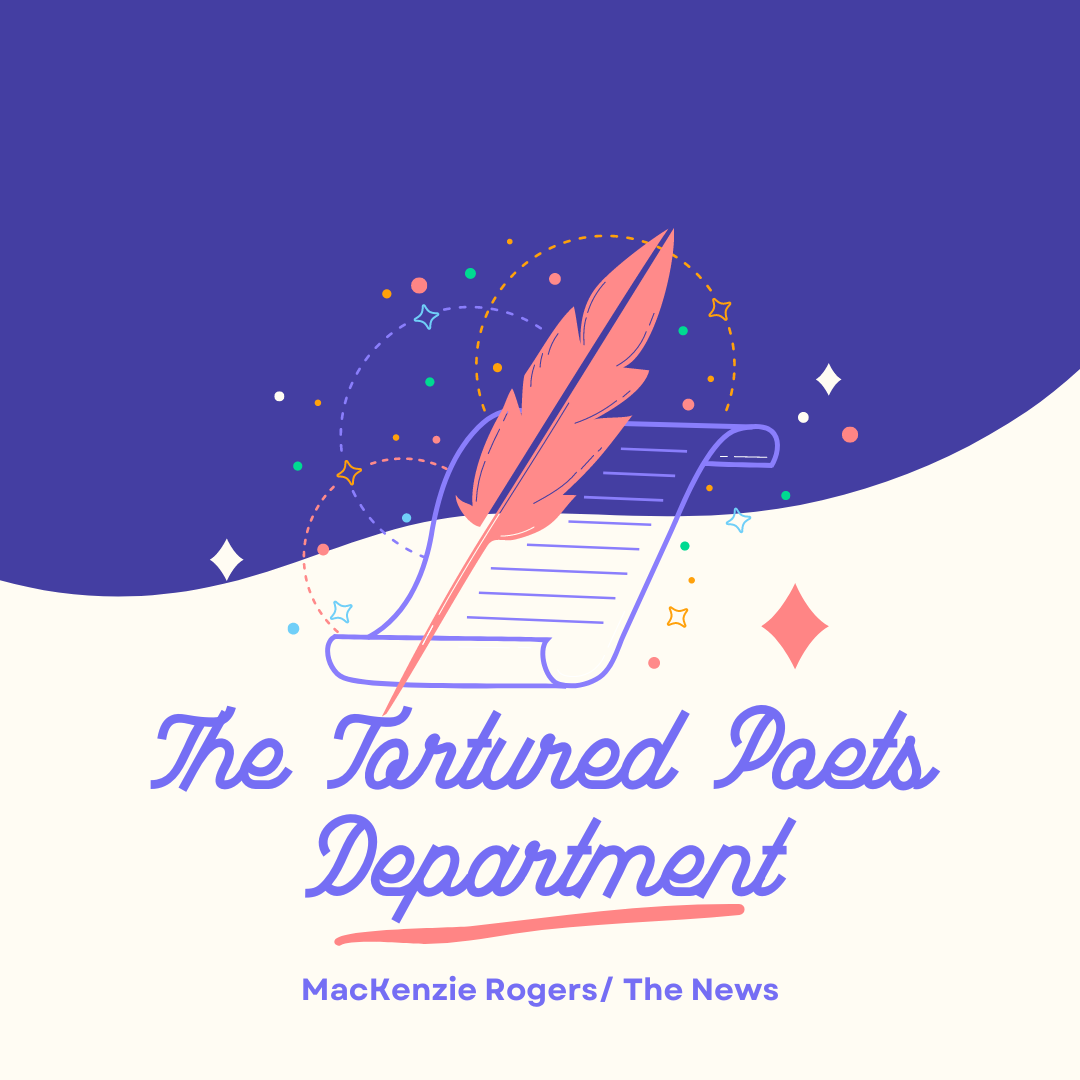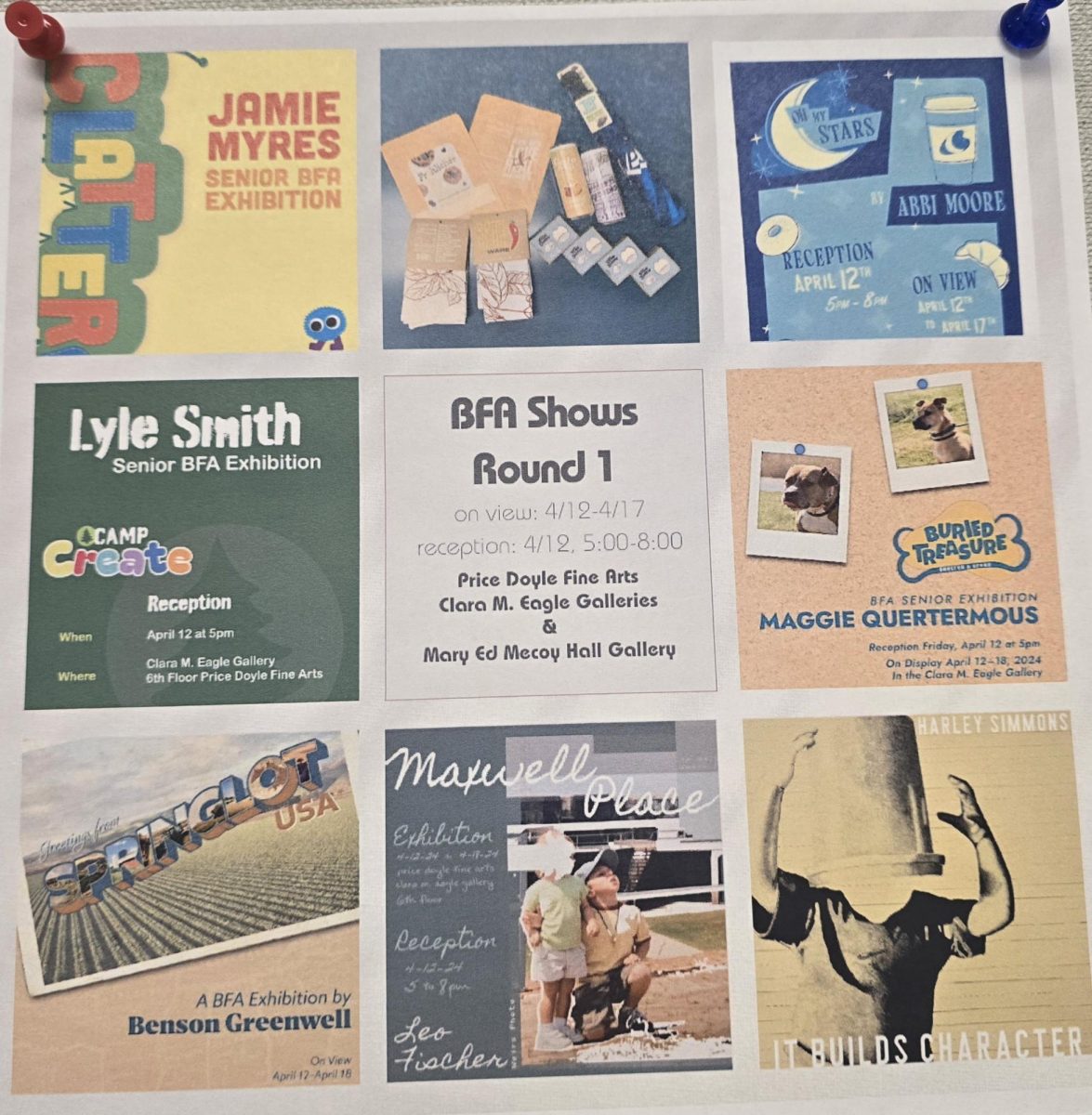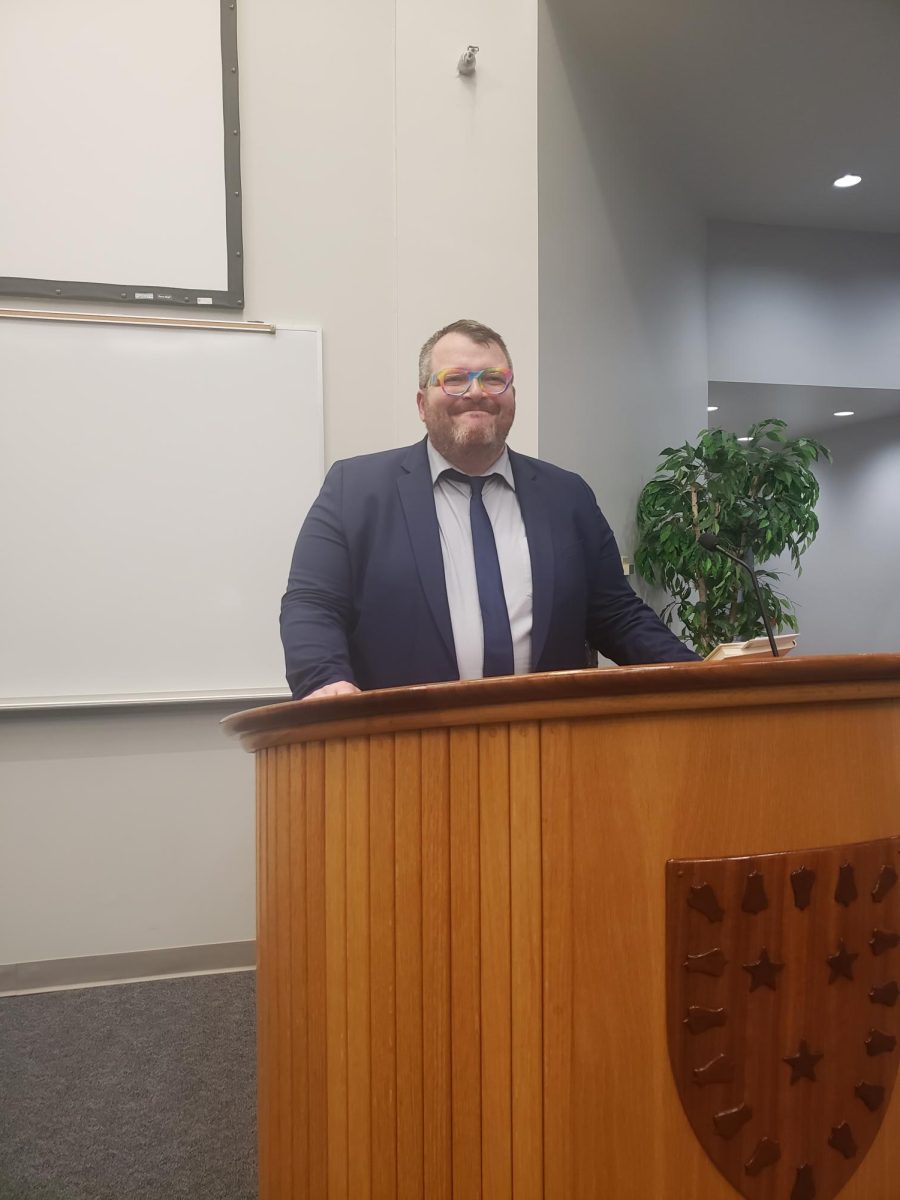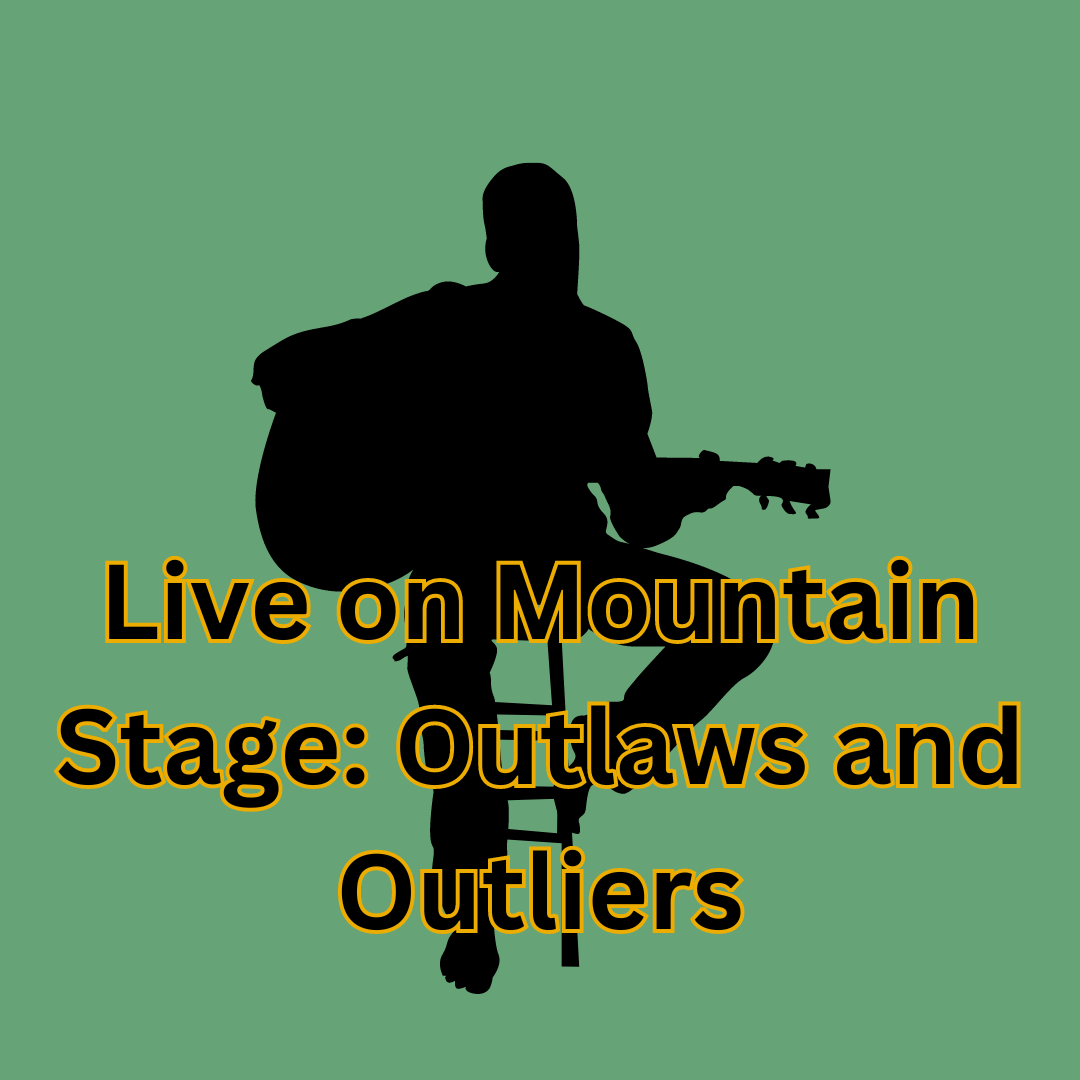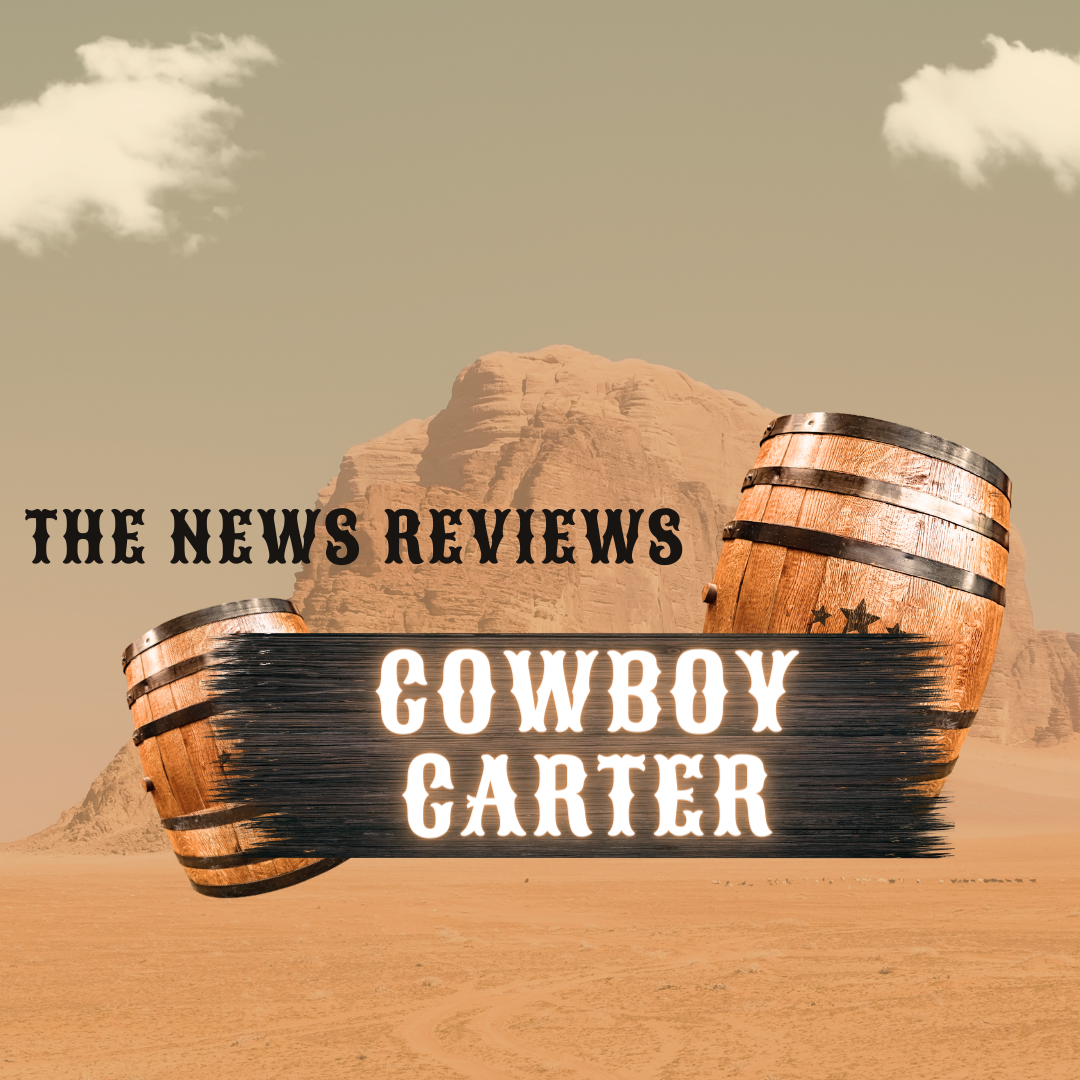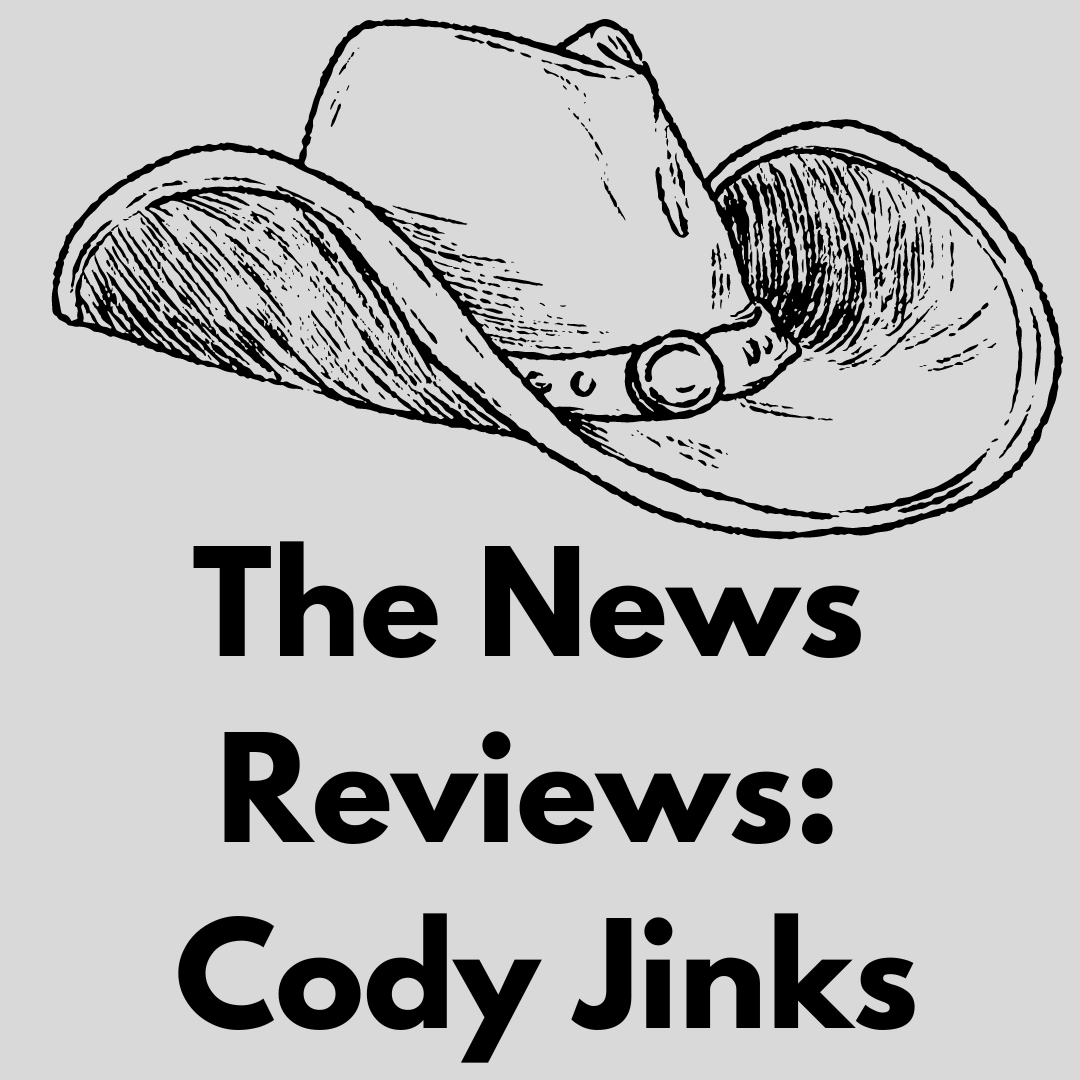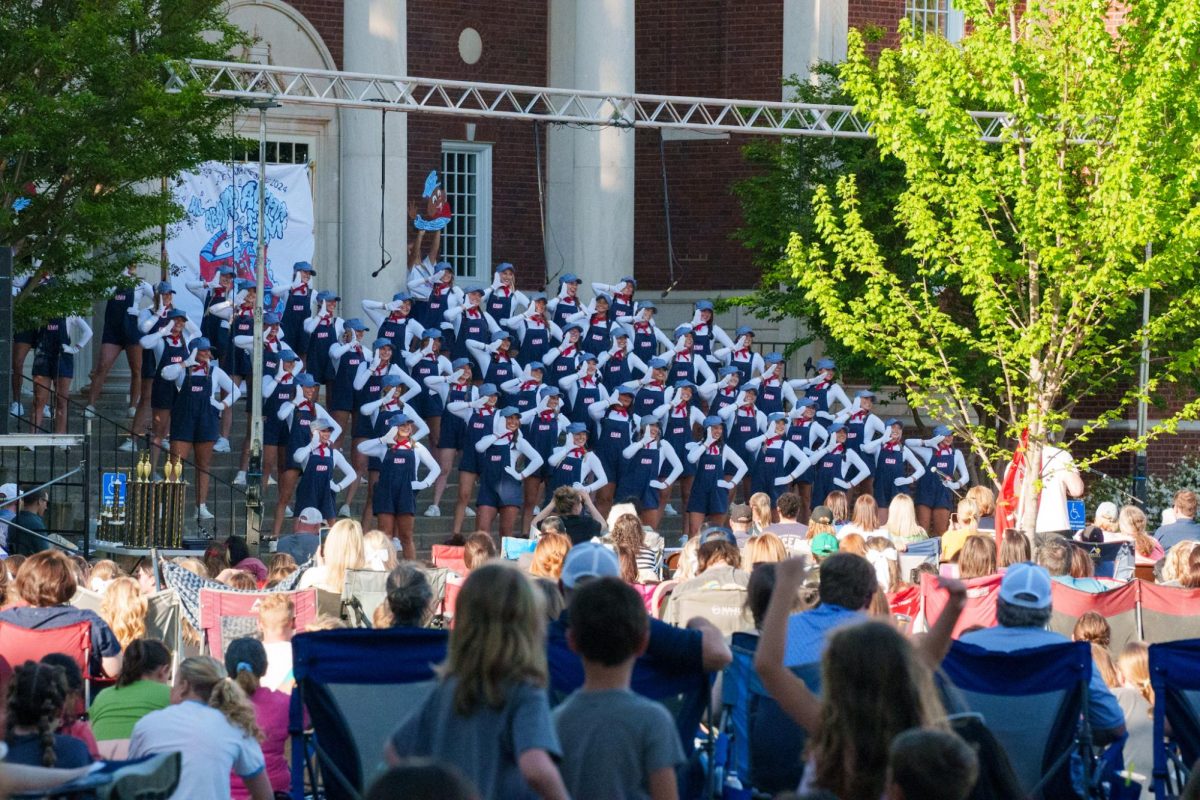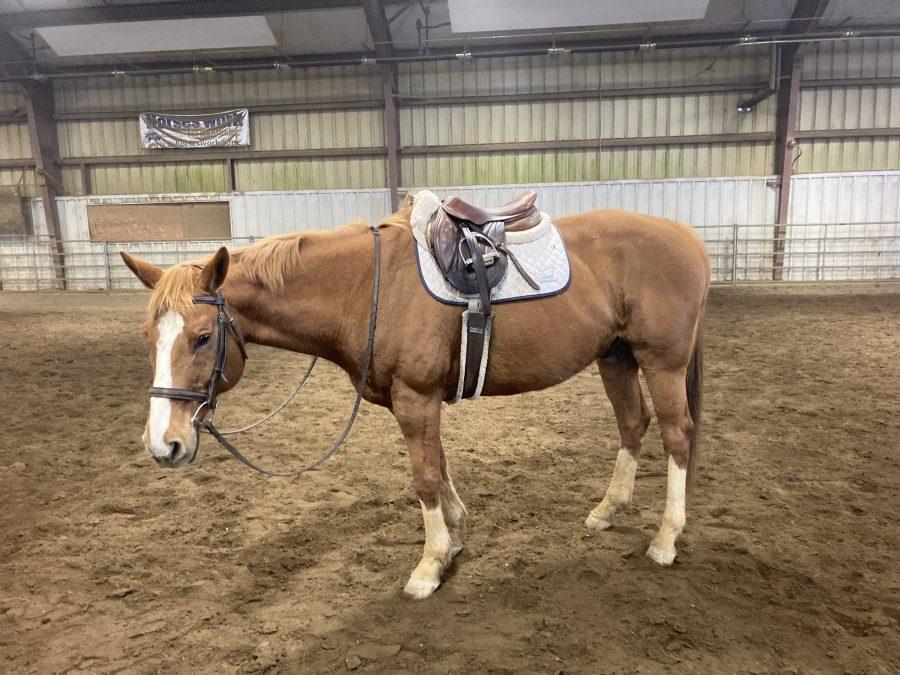Erinn Finley
Staff Writer
[email protected]
A barn near Chicago donated a 12-year-old thoroughbred named Duncan to the Murray State Equestrian program last year.
Sue Robinson is a coordinator of riding, coach and lecturer in the Hutson School of Agriculture. She said they use Duncan for hunt seat riding and jumping classes and the equestrian team rides him in competitions.
“He has made an excellent horse for us,” Robinson said. “I use him in my basic hunt seat class, and he is used by the teams. We took horses to MTSU when we went there and rode, and he was one of the fence horses we took. He did a really good job.”
Hunt seat is a style of riding that requires a specific type of saddle. Robinson said it is the style of riding seen in the Olympics.
Robinson said Duncan was trained for hunt seat riding before he came to the University, but he was still green. She said he has come a long way and is now no longer green.
Robinson said the equestrian center staff is selective about which horses are accepted into their program. She said when horses are offered for donation, the equestrian staff will keep the horse for a trial period of 30 to 60 days to see if the horse is sound and can fit into their program.
“Not every horse will take multiple riders and stay sane,” Robinson said. “Some horses will do fine with one rider … all the time, but if you change riders and abilities on them, they don’t do well.”
The IRS requires a donated horse to be kept for three years if the person is claiming a donation, and Robinson said this is part of the reason they are selective about which horses they accept for the program at Murray State.
Robinson said Duncan was energetic and in need of a more advanced rider when he first came for his trial period, so they kept him longer than the usual time. She said they need horses that can handle both inexperienced riders and advanced riders.
Robinson said the program has received multiple donated horses over the years. They received several this past spring and a high dollar dressage horse and a reining horse, several years ago that recently did well in the semi-finals.
Robinson said they have just under 50 horses for student education purposes. Students are not allowed to ride the horses outside of class without specific approval from the equestrian center staff, who keep charts to ensure the horses are not overworked or overridden.
The equestrian program includes beginning riding classes, basic western and hunt seat classes, intermediate riding classes and an advanced class in either western or hunt seat is offered every other fall.
Robinson said they also have a special class in which a student is given a project horse to ride regularly. These horses are not ready to be ridden in basic classes and students will further the horse’s education under the guidance of an instructor.
Robinson said beyond this class, some of the advanced equestrian team riders will have a project horse to ride regularly and help train.
One such student, current Racer 1 jockey Madison Kirby, worked with Duncan over the summer after he was donated.
Kirby, a sophomore agriculture education major, said she enjoyed her time working with Duncan.
Kirby said the first step when they get a horse is for a coach to ride the horse to ensure the horse is safe, after which the students then begin working with the horses.
“We just start them back on basics, see what they know, see what they don’t know and just work really slowly to see how they’re comfortable in our program,” Kirby said.
Kirby said she came four times a week during the summer to ride Duncan, who at first took off a lot, changed his canter leads without permission and did other things the rider didn’t want him to do.
Kirby said Duncan was her first project horse at Murray State.
“When I was riding him at the beginning, I really liked him,” Kirby said. “He wasn’t ever dangerous. He was eager to learn and wanted to learn. We just had to learn what buttons to push and not to push to make him happy here and figure him out.”


